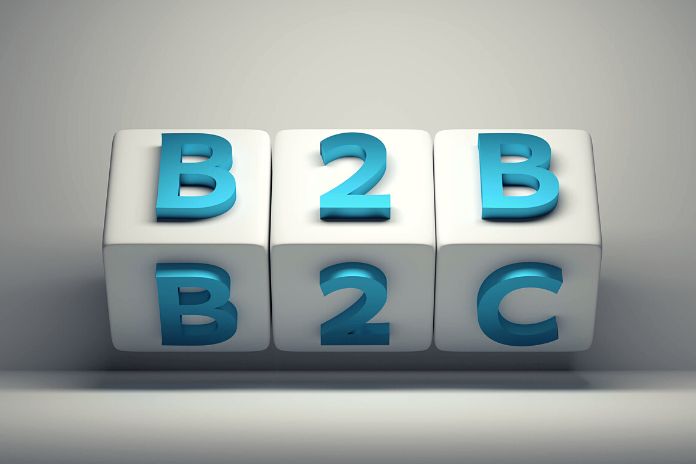There is always the risk of confusing the areas when it comes to B2B and B2C e-commerce. Or to ignore the distances, the strengths, and the peculiarities of these sectors, which must, for obvious reasons, be addressed with different sensitivities. Of course, we are still talking about e-commerce. Am I right? In the end, the web agency has to create an e-commerce site to sell online. But everything changes from the point of view of strategy. There are different ways to promote online. And from a certain point of view, the portal also has divergent characteristics. Ecommerce B2B and B2C are other worlds that move in the same universe: do you like it as a metaphor? Let’s explore the various aspects together.
What Are B2B And B2C E-Commerce?
There are two sectors of electronic commerce. In the first case, we mean online sales in business to business, therefore, between different companies. In the second, however, we refer to the business to the customer and, therefore, to the economic interaction between a professional entity and the final buyer, the private citizen. In reality, there are also other types of e-commerce markets, such as, for example, business to government or customer-to-customer. That is the B2G, in which a company has relations with the public administration, and the C2C, which sees ordinary people creating horizontal sales experiences. But the B2B and B2C e-commerce categories are the most widespread and shared in the online sales market.
Characteristics Of The Various Sectors
Indeed, a B2B eCommerce must take into account different steps compared to the B2C model. For example? Firstly, very different decision-making dynamics influence the type of marketing to be applied to the entire portal. Think about this: those who buy in the B2B sector must consult superiors and managers. At best, they make concrete assessments to make a decision. In B2C, however, the customer only has to consider his desire, impulse, and instinct. In some cases, he can buy instinctively, without having to justify his choice to other people.
The B2B purchasing manager carefully studies the options and focuses on strategic procurement, perhaps in the long term, by purchasing large stocks of goods. In this case, an error can significantly affect the company’s production chain. What changes, however, for a B2C customer? All this has a different value because a wrong purchase does not have catastrophic consequences. Of course, it is better to avoid it, but the attention paid to the decision-making process is different.
What Are The Strategic Differences?
B2B shoppers are generally habitual, so online selling businesses need to consider a long lifecycle for their customers. B2C consumers, on the other hand, do not have this characteristic. Often they only buy a product once. Magri becomes attached to e-commerce and purchases different products but does not need supplies. What does this mean in terms of strategy? First, creating different websites designed to manage the navigation flows with the essential dynamics is necessary. For example, for a B2B eCommerce value, the information on the technical sheet becomes very thorough to allow those who decide to obtain all the data necessary to evaluate the purchase. In a B2C shop, on the other hand, other aspects can be highlighted.
For example? The typical keys of persuasion are exploited with greater force. Maybe by using more and more levers that allow you to increase sales thanks to discounts and coupons that do not work in B2B. Because as we have suggested, in this case, the user aims at a choice based on the goodness of the purchase to reach his goal. That is to say, the increase in turnover. So if you want to take advantage of the sales funnel and feed the contact over time, you can activate other content marketing strategies. Such as, for example, the creation of ebooks, the sharing of research and statistical data, training through webinars, and the publication of in-depth blog posts. Just like the General Electric website, an excellent example of a remarkably advanced B2B e-commerce.
Are There Any Hybrids Between B2B And B2C?
Of course, in some cases, companies look both ways and offer combined experiences. So they don’t only specialize in one market but can sell to both companies and individuals. This is especially the case in sectors with no specialization and technical competence. So the differences between B2B and B2C eCommerce only concern the quantity purchased. So, for example, the website of B2B and B2C e-commerce will have two different sections that allow you to make specific purchases. Purchase exclusive benefits for companies with a VAT number, guaranteeing better prices, effective logistics, and particular services for small businesses or freelancers. The most obvious example: is Amazon Business, the B2B section of the large generalist e-commerce. Sign up, and you can enjoy the benefits reserved for this section.
Ecommerce B2B And B2C: How To Choose?
Underlying this decision clearly reflects the nature of your business structure. It would help if you had clear ideas about your business model and created e-commerce that reflects your choices.
Also Read: SEO For The Metaverse: The New Content Marketing Strategies

